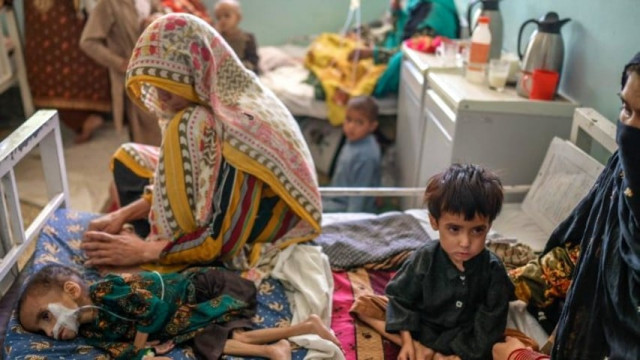UN urges countries to ease family reunification for Afghans
Simple procedures can prevent refugees from taking perilous, irregular journeys, says UN Refugee Agency

The UN Refugee Agency on Friday urged countries to facilitate and speed up family reunification procedures for Afghans whose families were left behind in Afghanistan or who have been displaced across the region.
"While recent political developments in Afghanistan have not led to large-scale cross-border displacement, many among pre-existing Afghan refugee and asylum seeker populations remain separated from their families owing to the inaccessibility of family reunification procedures," said UNHCR spokeswoman Shabia Mantoo.
Speaking at a UN press briefing, she said many Afghans were approaching UNHCR offices, desperately concerned for the safety and welfare of their family members who remain in Afghanistan or neighboring countries following the Taliban takeover earlier this year.
The Taliban captured Kabul on Aug. 15, forcing the president and other top officials to leave. They have formed an interim government headed by Hasan Akhund.
In Geneva on Friday, Mantoo said: "To ensure the preservation of family unity and to help protect lives on account of the exceptionally challenging situation in the country, UNHCR is urging states to prioritize and simplify family reunification admission procedures."
READ Widespread corruption in Afghanistan under US occupation unearthed
Barriers to family reunification
While many countries have legal frameworks that provide for refugee family reunification and offer specific safeguards and waivers, the UN refugee agency is concerned that many Afghan refugees could face considerable administrative barriers in realizing that right.
In the same briefing from Kabul, UNHCR spokesman Babar Baloch said he was aware of concerns about the impending winter in Afghanistan.
"Once you go out and meet people, you really get a sense of desperation and destitution in terms of needs of the people, and the economy as the services are nearing a collapse over here."
He said Afghans urgently need relief and that the UNHCR hopes to reach nearly half a million people inside the country with its winter assistance.
Some barriers for those seeking family reunification include prohibitive costs, lengthy waiting times, and stringent documentation requirements.
As many embassies and consulates are currently closed in Afghanistan, the UNHCR is urging countries to consider the constraints that refugees may face in meeting taxing administrative and documentation requirements for these admissions.
The agency is proposing that a more pragmatic and flexible approach be taken, including innovative processing methods and remote interviews.
It said that family reunification schemes are distinct from refugee resettlement programs, but they can complement humanitarian programs by facilitating safe and legal entry for refugees to other countries.
Simplified procedures can prevent refugees from taking perilous and irregular journeys, said the UN agency.



















COMMENTS
Comments are moderated and generally will be posted if they are on-topic and not abusive.
For more information, please see our Comments FAQ